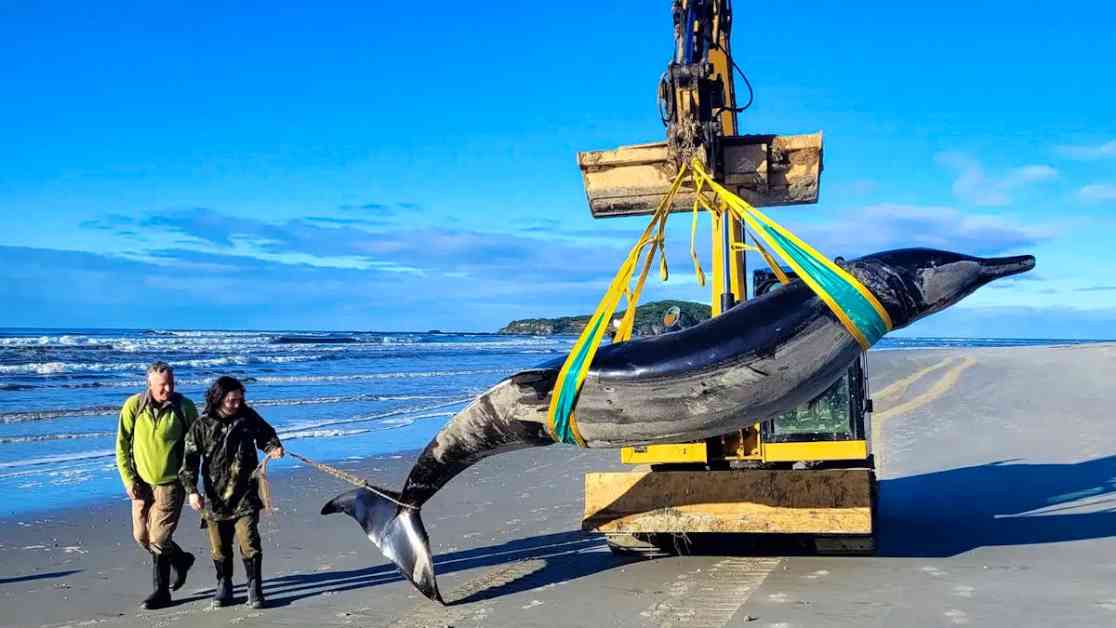Rare Whale Dissection in New Zealand: In-Depth Analysis
In a groundbreaking scientific endeavor, researchers in New Zealand have embarked on the dissection of a rare Travers beaked whale that washed ashore on the South Island earlier this year. This particular species is so scarce that only seven specimens have ever been documented worldwide, making this dissection a truly unique opportunity for scientific exploration and discovery.
Unveiling the Mysterious Travers Beaked Whale
The Travers beaked whale, measuring five meters in length, was carefully removed from the beach in July and has been stored in a specialized freezer ever since. Anton Van Helden, a renowned whale specialist, described this whale as “only the seventh known specimen in the entire world,” highlighting the significance of this dissection in unraveling the mysteries surrounding this elusive marine mammal.
Delving into the Depths of Discovery
Over the course of a week, scientists will meticulously dissect the whale to gain insights into its behavior, diet, and anatomical characteristics. These deep-sea divers are rarely seen in their natural habitat, posing a significant challenge for researchers studying these enigmatic creatures. The dissection process promises to shed light on crucial aspects of the Travers beaked whale’s biology that have remained shrouded in mystery until now.
Conservation Concerns and Future Implications
The New Zealand Department of Conservation has labeled the Travers beaked whale as “the rarest in the world.” Despite being first described in 1874 based on limited jaw and teeth specimens, the lack of live sightings has placed this species in the “data deficient” category by the International Union for Conservation of Nature. The ongoing dissection represents a crucial step towards understanding and safeguarding the future of this critically endangered species.
As we witness the unfolding of this unprecedented scientific endeavor, we are reminded of the fragility and complexity of our planet’s marine ecosystems. Through collaborative research efforts and dedicated conservation initiatives, we can strive to protect and preserve the remarkable biodiversity that enriches our world. Let us embark on this journey of discovery together, as we unravel the secrets of the deep blue sea and pave the way for a sustainable future for all living beings.
















![EuroDreams (FDJ) Result: Draw of Thursday, November 28, 2024 [Online] news-29112024-173727](https://shanghainewstv.com/wp-content/uploads/2024/11/news-29112024-173727-324x160.jpg)
![Indie music fans gather at l’Antipode for [Face B] Kool Things soirée on Saturday night news-15112024-105933](https://shanghainewstv.com/wp-content/uploads/2024/11/news-15112024-105933-324x160.jpg)